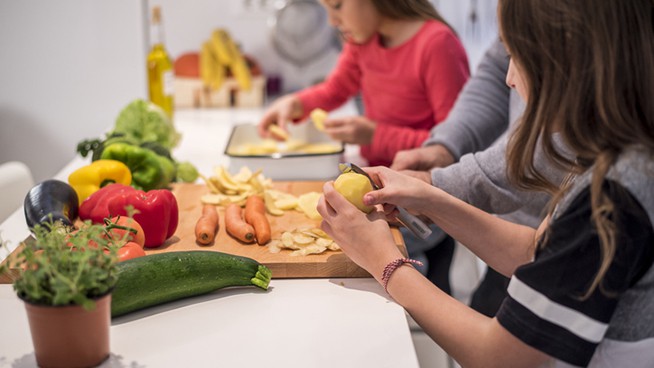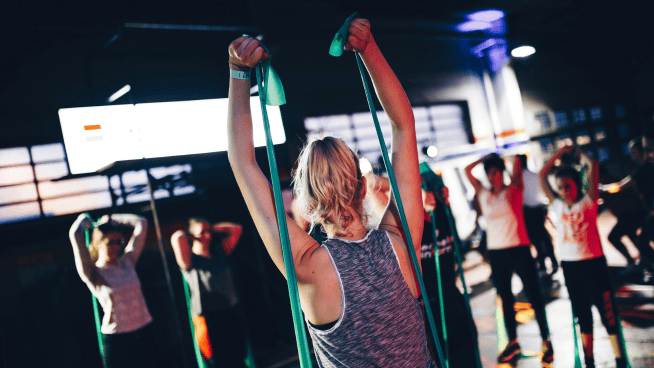Can Athletes Sustain a Meat-Free Diet?
Almost everyone who’s ever considered a meat-free diet has heard the question, “Where will you get your protein?” Of course, vegetarian diets can be rich in protein, but it takes greater planning and dietary knowledge to achieve optimal nutrition. For those engaged in an intensive training program, getting enough protein can truly be a challenge.
With this in mind, it’s worth considering whether a vegetarian, or even a vegan, diet is sustainable for serious athletes. What does it take to create a diet that can fuel your competitive drive?
Cook It Up
Whether you choose to go vegetarian and still eat eggs and dairy (which are excellent sources of protein), or opt for a vegan diet that excludes these sources, you’ll need to integrate alternative protein sources to round out your diet. Plenty of serious athletes thrive on vegetarian and vegan diets.
One thing that’s worth noting is that if you’re going to eat a vegetarian diet as an athlete, you’ll need to commit to cooking. Yes, it can be hard to fit meal prep into an already packed schedule, but your diet will be much healthier—and taste better—if you spend time developing your culinary skills. Non-vegetarians can grab a quick snack, even a protein-packed one, just about anywhere, but you’ll need to be prepared.
Plan your meals in advance to make sure your daily and weekly menus contain everything you need to perform at your best. Take a look at menus developed by experienced vegetarian chefs; you’ll notice that they have several ingredients and typically feature bean dishes and plenty of fiber to keep you full. Bean soup is a great option for vegetarians since you can prep large batches in advance and even add a protein-rich grain like quinoa.
Learn the Tricks
Athletes need more protein than the average person, so when they eat a plant-based diet, they need to find creative ways to get enough. One key is to learn what foods contain protein and consider where they fit into your diet. Adding nuts to your diet—they make a great portable snack—can help give you the energy boost you need. Plus the added calcium can prevent muscle cramps.
One surprising source of protein, which has become increasingly popular with vegetarian and vegan athletes in recent years, is peas. Peas are almost a complete protein, and though most meat eaters wouldn’t believe it, a cup of raw split peas has 48 grams of protein. That’s 10 grams more than you get in a cup of chicken. Clearly, it’s time to make some pea soup!
Another way to slip added protein into your diet is by using plant-based protein powders. Though not an ideal source of protein, you can boost their nutritional value by blending them into smoothies or using them in other recipes. When baking, for example, you can leave out some of the flour and replace it with protein powder, or use hemp or almond flour in the recipe, both of which are good sources of protein. This may alter the texture of your final product to some extent, but you can experiment with different flours and powders until you find one that works.
At the end of the day, being a vegetarian or vegan athlete is not that different from getting your protein from meat; you still need to make smart choices that provide the fuel you need without a lot of low-quality ingredients. And just like any other athlete, if you focus on building balanced menus, and not just on this one dietary category, you’ll find yourself eating a more nutritious diet in all respects.
RELATED:
3 Ways to Easily Add More Protein to Your Diet
9 Foods You Didn’t Know Have as Much Protein as Peanut Butter
RECOMMENDED FOR YOU
MOST POPULAR
Can Athletes Sustain a Meat-Free Diet?
Almost everyone who’s ever considered a meat-free diet has heard the question, “Where will you get your protein?” Of course, vegetarian diets can be rich in protein, but it takes greater planning and dietary knowledge to achieve optimal nutrition. For those engaged in an intensive training program, getting enough protein can truly be a challenge.
With this in mind, it’s worth considering whether a vegetarian, or even a vegan, diet is sustainable for serious athletes. What does it take to create a diet that can fuel your competitive drive?
Cook It Up
Whether you choose to go vegetarian and still eat eggs and dairy (which are excellent sources of protein), or opt for a vegan diet that excludes these sources, you’ll need to integrate alternative protein sources to round out your diet. Plenty of serious athletes thrive on vegetarian and vegan diets.
One thing that’s worth noting is that if you’re going to eat a vegetarian diet as an athlete, you’ll need to commit to cooking. Yes, it can be hard to fit meal prep into an already packed schedule, but your diet will be much healthier—and taste better—if you spend time developing your culinary skills. Non-vegetarians can grab a quick snack, even a protein-packed one, just about anywhere, but you’ll need to be prepared.
Plan your meals in advance to make sure your daily and weekly menus contain everything you need to perform at your best. Take a look at menus developed by experienced vegetarian chefs; you’ll notice that they have several ingredients and typically feature bean dishes and plenty of fiber to keep you full. Bean soup is a great option for vegetarians since you can prep large batches in advance and even add a protein-rich grain like quinoa.
Learn the Tricks
Athletes need more protein than the average person, so when they eat a plant-based diet, they need to find creative ways to get enough. One key is to learn what foods contain protein and consider where they fit into your diet. Adding nuts to your diet—they make a great portable snack—can help give you the energy boost you need. Plus the added calcium can prevent muscle cramps.
One surprising source of protein, which has become increasingly popular with vegetarian and vegan athletes in recent years, is peas. Peas are almost a complete protein, and though most meat eaters wouldn’t believe it, a cup of raw split peas has 48 grams of protein. That’s 10 grams more than you get in a cup of chicken. Clearly, it’s time to make some pea soup!
Another way to slip added protein into your diet is by using plant-based protein powders. Though not an ideal source of protein, you can boost their nutritional value by blending them into smoothies or using them in other recipes. When baking, for example, you can leave out some of the flour and replace it with protein powder, or use hemp or almond flour in the recipe, both of which are good sources of protein. This may alter the texture of your final product to some extent, but you can experiment with different flours and powders until you find one that works.
At the end of the day, being a vegetarian or vegan athlete is not that different from getting your protein from meat; you still need to make smart choices that provide the fuel you need without a lot of low-quality ingredients. And just like any other athlete, if you focus on building balanced menus, and not just on this one dietary category, you’ll find yourself eating a more nutritious diet in all respects.
RELATED:
3 Ways to Easily Add More Protein to Your Diet
9 Foods You Didn’t Know Have as Much Protein as Peanut Butter











